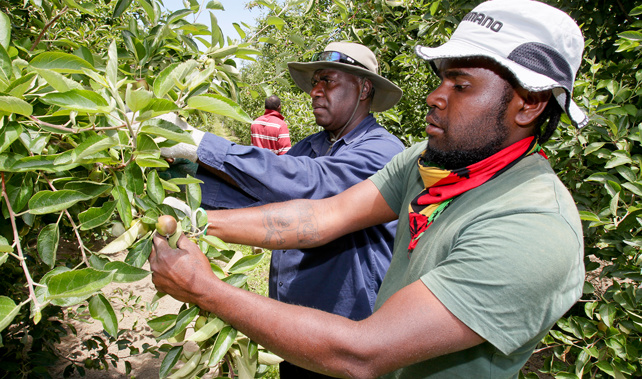
UPDATED 2.01PM: The Minister of Immigration has been warned by his officials that there's an increasing use of migrant labour in low paying jobs despite no strong evidence of skill shortages, official documents show.
The Ministry of Business, Innovation and Employment (MBIE) advised Immigration Minister Michael Woodhouse last December.
A briefing paper, released under the Official Information Act, stated that recent trends show relative decline in the skill level of permanent migrants. The papers also showed the increasing use of low-wage and low-skill migrant labour in domestic industries where there is no strong evidence of genuine skill shortages.
Other official papers reveal the farming sector's pushed back against efforts to remove beef and dairy farming positions from immigration skills shortages lists.
MBIE sought to remove beef and dairy cattle farming occupations from the list citing the high number of work visas issued and the possibility of domestic job seekers doing the work.
The paper shows the proposal has been opposed by DairyNZ, Federated Farmers and the Primary Industry Training Organisation - all of whom wanted the current provisions retained, or any changes delayed by at least two years.
MBIE has also recommended employers seeking lower skilled staff be made to satisfy labour market tests.
New Zealand First leader Winston Peters believes there's nothing new in the advice being given to the Government.
"It's clear that the government has allowed us to be headed towards a low wage, low skill economy and to ensure that there is not competition amongst New Zealanders for a better outcome than that, their bringing in a stack of people from off shore."
He said the government needs to rethink its approach on immigration.
It comes as papers released under the Official Information Act show there's an increasing use of migrant labour in low-wage and low-productivity industries where no strong evidence of skills shortages exists
Peters said industries used to train and employ New Zealanders first - but he said we've given up and under, what he calls the the Prime Minister's immigration addiction, we're now seeing our people not getting jobs or training.
Council of Trade Unions secretary Sam Huggard insists there should be a plan to move towards higher wages and higher skilled jobs rather than using migrants for poorly paid jobs.
Huggard believes the government really doesn't have a plan for migration, to make it work for migrant workers, or for the New Zealand economy.
Take your Radio, Podcasts and Music with you









